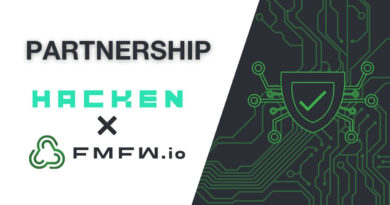Can Blockchain Empower Local Real Estate Developers?
Meet Mr. Daha. He’s been running a small scale local real estate development company in the Ramagundam district of Telangana for the past 15 years. Like most other developers, Mr. Daha has aspirations to take on large commercial or public works projects for his district and be a part of developing local infrastructure. However, despite having 15 years of real estate development experience under his belt, he is unable to get any large-scale projects in his portfolio and contribute to local development.
The real estate stats for Telangana tell us a different story. Telangana has been seeing steady growth in the real estate sector due to the political stability it gained in 2014 when it separated from Andhra Pradesh after a long period of instability and uncertainty. Proactive government policy and a large number of infrastructural development projects have boosted the real estate market. Among India’s seven major cities, Hyderabad is the only one where property sales have grown by an average of 32% from 2013 to 2017, according to property consultants Anarock.
Telangana real estate was barely affected by demonetization and GST implementation, whereas the sale of residential and commercial units across the country fell drastically. As a result of policies like Telangana State Industrial Project Approval and Self-certification System (TS-iPASS) Act in 2014 that provides clearances to projects within 15-30 days, Telangana has become a hot spot for start-ups and MNC’s.
Clearly, there is ample demand for developers to take on projects and a supportive environment for them to thrive. So why is Mr. Daha unable to get his piece of the cake?
As a result of only being able to take on small scale projects, Mr. Daha does not have the money to afford political connections neither does he have a distant relative in a public office somewhere to get large projects pushed his way.
Out of the control of Mr. Daha’s hands, there are many inherent problems the Telangana real estate faces as an industry which restricts the growth of small and medium scale developers like Mr. Daha.
Speed bumps along the way
- The inclusion of middle and lower class- Investment opportunities are primarily accessible to the wealthy or politically connected. Prospects for the middle and lower class are limited based on income, affordability, and availability.
- Financial restrictions on developers- The standard procedure to access or accept funds domestically or internationally is complex and regulatory requirements cause hindrance for developers to undertake larger projects and gain access to FDI.
- The illiquidity of assets- It may be difficult to make an immediate sale at any given instance due to unavailability of credible buyers or unavailability of buyers who can afford the property and so on.
- The rise of Amaravati- The noisy new neighbor could potentially drive investments away from Telangana.
How can Telangana empower Mr. Daha and overcome the challenges above simultaneously?
The answer is simple, Blockchain. Some applications of this distributed ledger technology (DLT) will allow Telangana to bring inclusivity to all the stakeholders involved in a real estate transaction, at the same time empowering its small and medium scale real estate developers.
Let’s use a live example for clarity. Relex Development is a Blockchain-based real estate development company which runs a real estate investment platform with the goal of streamlining FDI into emerging economies. Now hypothetically, if Mr.Daha uses this investment platforms services for his projects, let’s look at how he could come off better.
Mr.Daha requires funds to build a large Govt school in his district but getting funds from the Govt would be time-consuming as the proposal may have to go through multiple levels of bureaucracy. Now, if Mr.Daha lists the project on the Relex development investment platform, he can skip all the red tape and directly source funds from global investors with ease and confidence as transactions are easily traceable and transparent using RLX tokens.
The RLX tokens are tradable for USD. It allows its holders to invest in projects in the development phase and rewards them in return with passive income, equity stakes or proxy ownership of the property. Blockchain technology enables the creation of these Token-based investments that allow fractional ownership of assets to drive investment from investors of all income ranges and bring inclusivity to the industry. It not only solves problems of illiquidity of assets by creating digital assets called tokens but also allows these tokens to be traded as and when the investor pleases.
Mr.Daha could even automate the management of the property using smart contracts. For example, digital leases which automatically make payments and service charges with a full audit trail, no human error, and reduced transaction fees.
Applications of Blockchain technology like Token-based investments are a promising opportunity for the Telangana government as it is closely in line with their growth strategy. Ease of raising capital for real estate projects will see the economy flourish as the inflow of FDI will strengthen the economy further, and the Mr. Daha’s of Telangana can take on large projects which will add to the infrastructure of the state.


